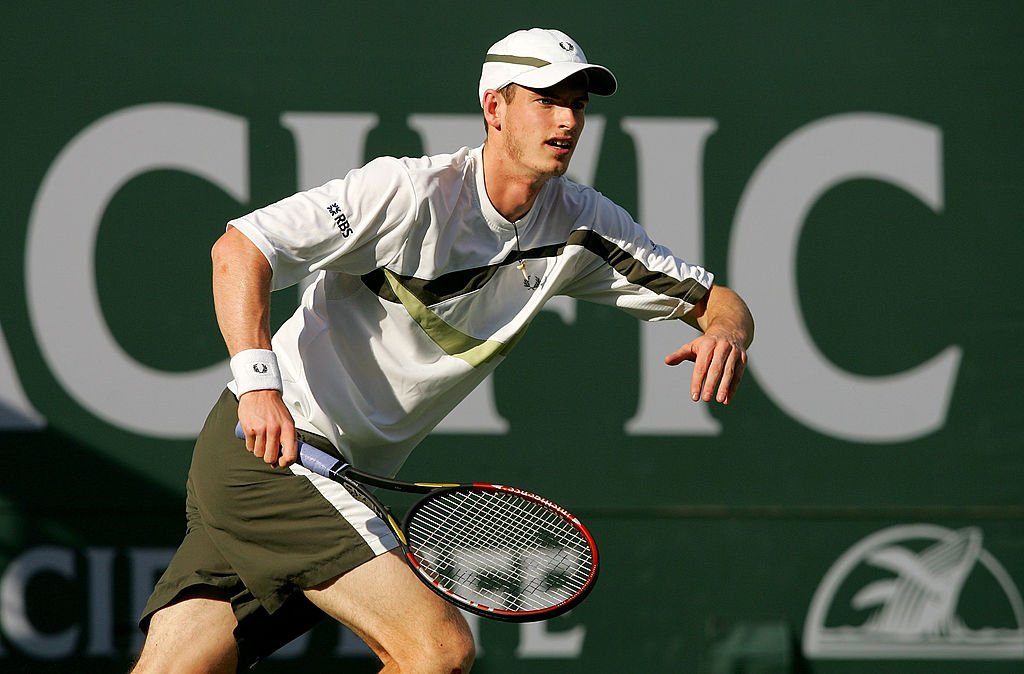Indian Wells Memories
/DAVID
It was 2007. I was at Indian Wells for the first time, reporting for BBC Radio. Andy Murray was in only his second full season as a professional tennis player, but the hype around him in Britain was already significant. After navigating early round matches against Nicolas Mahut and Nikolay Davydenko, he drew former World No.2 Tommy Haas in the quarterfinals.
The BBC joined me every 15 minutes for a 40-second report to update our listeners. Suddenly, at 3-6, 0-1, Murray ran for a ball, went over on an ankle, and yelped whilst collapsing to the ground. It was a horrible sight and sound, and I won’t forget the murmur of concern that went around the stadium. Haas was one of those worried onlookers, and brought his chair out for Murray to sit on while the ATP trainer sprinted to the scene. For 10 minutes, Murray’s ankle was attended to, and I informed BBC Radio listeners that a retirement looked inevitable.
Photo: Getty Sport
But no. Murray rose to his feet, played on, levelled the match, and then forced a final set tie-break. At this point, with the match having become more and more interesting to my BBC producers in the early hours back home, I was told that BBC Radio would be joining me for the tie-break. This was not expected, and normally when you commentate on radio, you have someone alongside you to talk to - a former player, a coach, or another broadcaster. But I had commentated for a few years, and assumed it would just be for a couple of minutes at the start of the tie-break, and then again for match point. No. They wanted to stay with me for the entire tie-break. It ended up being a 10-8, 15-minuter. That is a long time to talk on your own on the radio. It was an electric experience though, and Murray won it to reach his first ever Masters 1000 semifinal.
For me, it was a career highlight at the time. For Murray and Haas it became the source of future aggro.
Five years later, Haas said about Murray:
“It’s difficult when you play against someone on the court like he is not well or injured. I find no one does this better than Murray. Sometimes he looks like he can barely move, then comes the trainer and he moves like a cat. I believe everyone knows this. People talk about it in the locker room. Maybe he would like to take some pressure off himself. He tells himself, 'Maybe I have a niggle or a problem, I’m not feeling too well but I’m going to try it anyway.' But he is such a talented player that he does not need to.”
Put to the man he was talking about later that day, Murray said: "Nothing to say on it. That's good. Good for him… I don't care for his opinion.”
Sixteen years on, Haas is now the Tournament Director here in Indian Wells, and Murray just won a straight sets match against Radu Albot for the first time since October. I’m not exactly sure what their relationship is like today, but suspect Haas has changed his opinion of Murray, and that they have smoothed it over.
Murray’s metal hip, iron will and insatiable appetite have carried him to 7 final set wins this year, and it remains just as exhilarating experience to cover his career as it was back then.
CATHERINE
My earliest memories of Indian Wells coincide with the earliest days of my tennis fandom. They are of being up late with my Dad in ‘the den’ (the only room in the house that had cable, and it was attached to my brother’s dingy teenage bedroom) watching the coverage of this impossibly idyllic sporting oasis being beamed across the Atlantic and into the dregs of British Winter. I remember Tim Henman losing two finals in three years (sorry Tim), I remember Daniela Hantuchova playing the match of her life to beat World Number One Martina Hingis, and most of all I remember palm trees and mountains and sunshine.
Photo: Getty Sport
The beauty and brilliance of Indian Wells looked so remote and untouchable that It took on a sort of mythological quality in my tennis fandom. If I can make it there one day, I thought, I’ll really have made it.
My Dad will want to point out the addendum to this story which is that he made it to Indian Wells long before I did. He and my Mum finally came here in 2005 as part of a trip to the USA Ito visit my brother who was studying in Albuquerque at the time, and…it rained solidly for the duration of their stay. The story of how my dad had to buy emergency woolly socks and a waterproof poncho on what was supposed to be his long awaited trip to tennis paradise, is now part of Whitaker folklore, and I think of it every time I’m lucky enough to bask in the sunshine here watching tennis balls being struck.
MATT
My favourite Indian Wells memories are currently being made as I’m here in the desert for the first time, but for now I’ll go with an edition of the tournament I remember watching from afar on TV, and that was Juan Martin del Potro’s title run in 2018.
There came a point in Del Potro’s career when I was just desperate for him to make up for lost time, and this victory went some way to doing that. It was the second biggest title he ever won and it just felt so deserved after all of his struggles.
At this point in his career, Del Potro couldn’t hit over his backhand all the time, he didn’t play with quite the same fearlessness as when he burst onto the scene, and he dragged his big frame around the court. But all of this vulnerability meant that his emotional connection with crowds only grew stronger and the wave of support he received around the world was always moving.
Photo: Getty Sport
In the final he beat Roger Federer in three sets and it was one of the most thrilling and dramatic Masters 1000 finals I can remember as Del Potro pummelled forehands and saved multiple match points. It was also a perfect demonstration of how he could put Federer on edge like no else - I think the combination of his bone-shaking power and the way he could take a lot of the crowd support away from him always unsettled Federer.
In my mind, Federer was never quite the same again after this match. It seemed to break the momentum he had after getting back to No.1 in the world and winning three of the last four slams he’d entered, and I felt he never had the same assurance in the biggest matches following this crushing defeat.










